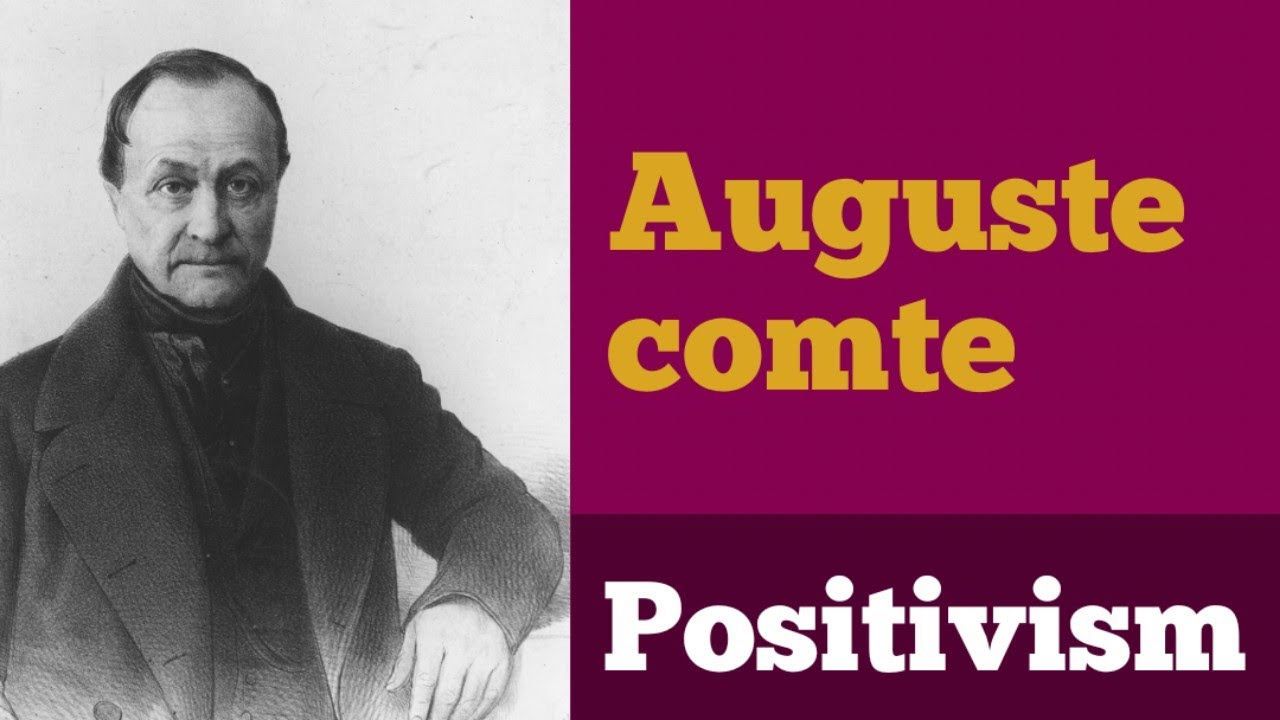Teori Sosiologi Klasik-Auguste Comte (Seri 2)
Summary
TLDRThis lecture delves into Auguste Comte’s theory of positivism, explaining his concept of societal evolution through three stages: theological, metaphysical, and positive. Emphasizing scientific observation and empirical evidence, Comte’s positivism argues that human societies progress from mythical explanations to scientific reasoning. The lecturer also highlights criticisms of Comte's ideas, noting that, despite the scientific approach, superstitions and metaphysical beliefs persist in modern society. Students are encouraged to explore sociological theories further, while acknowledging the limitations and ongoing relevance of Comte's framework in understanding human behavior.
Takeaways
- 😀 Auguste Comte is considered the father of modern sociology and the creator of positivism, which emphasizes observable and empirical knowledge.
- 😀 Positivism is based on the idea that phenomena can be observed, measured, and understood scientifically, rejecting metaphysical and speculative explanations.
- 😀 The theory of social evolution proposed by Comte divides human progress into three stages: theological, metaphysical, and positive.
- 😀 In the theological stage, societies explain natural events through myths, spirits, and gods (e.g., lightning as the wrath of gods).
- 😀 The metaphysical stage is characterized by abstract thinking, where humans seek causal explanations, such as wondering how and why natural events occur.
- 😀 The positive stage, according to Comte, involves scientific inquiry where humans explain phenomena through empirical observation, like understanding lightning as electrical discharge.
- 😀 Despite Comte’s theory, modern society still sees a persistence of superstition, myths, and metaphysical beliefs, even among educated people.
- 😀 Criticism of Comte’s theory highlights that the stages of social evolution may not be strictly linear and that people can still believe in the supernatural even in a scientifically advanced society.
- 😀 Comte’s positivism was revolutionary for sociology, emphasizing that human behavior and societal structures can be scientifically studied and understood.
- 😀 In practice, Comte’s positivism suggests that social phenomena are structured and measurable, similar to natural laws (e.g., human behavior, social norms, and institutions).
Q & A
Who is Guscom and why is he important in sociology?
-Guscom is referred to as the 'father of modern sociology' due to his contributions to the development of sociology, particularly through the introduction of positivism, which focuses on the observation and scientific measurement of social phenomena.
What is the main concept of positivism as introduced by Guscom?
-Positivism, as introduced by Guscom, is the philosophy that social phenomena should be studied scientifically, using observable and measurable facts. It asserts that only what can be empirically observed and quantified should be considered knowledge.
What does the term 'positivism' mean in Guscom's philosophy?
-In Guscom's philosophy, 'positivism' refers to the belief that knowledge is derived from sensory experience and observable phenomena. It emphasizes empirical data and the scientific method as the only valid approach to understanding reality.
How did Guscom describe the three stages of social development?
-Guscom proposed that society progresses through three stages: the theological stage (based on mythology and divine explanations), the metaphysical stage (focused on abstract reasoning and causality), and the positive stage (where phenomena are scientifically explained through observation and experimentation).
What is the difference between the theological, metaphysical, and positive stages of societal development?
-The theological stage involves understanding the world through myths and divine causes, the metaphysical stage involves abstract reasoning about causes, and the positive stage involves explaining phenomena through scientific observation and empirical evidence.
Why did Guscom believe that society would eventually reach the positive stage?
-Guscom believed that as human beings advanced in their thinking and technological capabilities, they would move from mythological and metaphysical explanations of the world to more rational, scientific approaches, eventually reaching the positive stage where everything could be explained through observation and empirical evidence.
What critique is made of Guscom's theory in the modern era?
-Critics argue that Guscom's theory of societal evolution, which predicts a complete transition from theological and metaphysical thinking to scientific positivism, does not fully account for the persistence of belief in superstitions, myths, and supernatural phenomena in modern society.
What role does social structure play in Guscom's sociology?
-In Guscom's view, social structures are fundamental and observable elements of society. They are systematic and can be measured, much like natural phenomena. For example, social behaviors and norms are structured and follow predictable patterns, much like the natural world.
How does Guscom's theory of positivism differ from earlier sociological approaches?
-Guscom's theory of positivism differs from earlier approaches by emphasizing the need for empirical data and scientific observation. Earlier sociologists often relied on abstract theories or metaphysical assumptions, while Guscom focused on what could be directly observed and measured.
How can Guscom's positivism be applied in studying social behaviors?
-Guscom's positivism can be applied by systematically observing and measuring social behaviors, using quantitative methods such as surveys, experiments, and statistical analysis to study patterns in social interactions, structures, and norms.
Outlines

هذا القسم متوفر فقط للمشتركين. يرجى الترقية للوصول إلى هذه الميزة.
قم بالترقية الآنMindmap

هذا القسم متوفر فقط للمشتركين. يرجى الترقية للوصول إلى هذه الميزة.
قم بالترقية الآنKeywords

هذا القسم متوفر فقط للمشتركين. يرجى الترقية للوصول إلى هذه الميزة.
قم بالترقية الآنHighlights

هذا القسم متوفر فقط للمشتركين. يرجى الترقية للوصول إلى هذه الميزة.
قم بالترقية الآنTranscripts

هذا القسم متوفر فقط للمشتركين. يرجى الترقية للوصول إلى هذه الميزة.
قم بالترقية الآن5.0 / 5 (0 votes)






